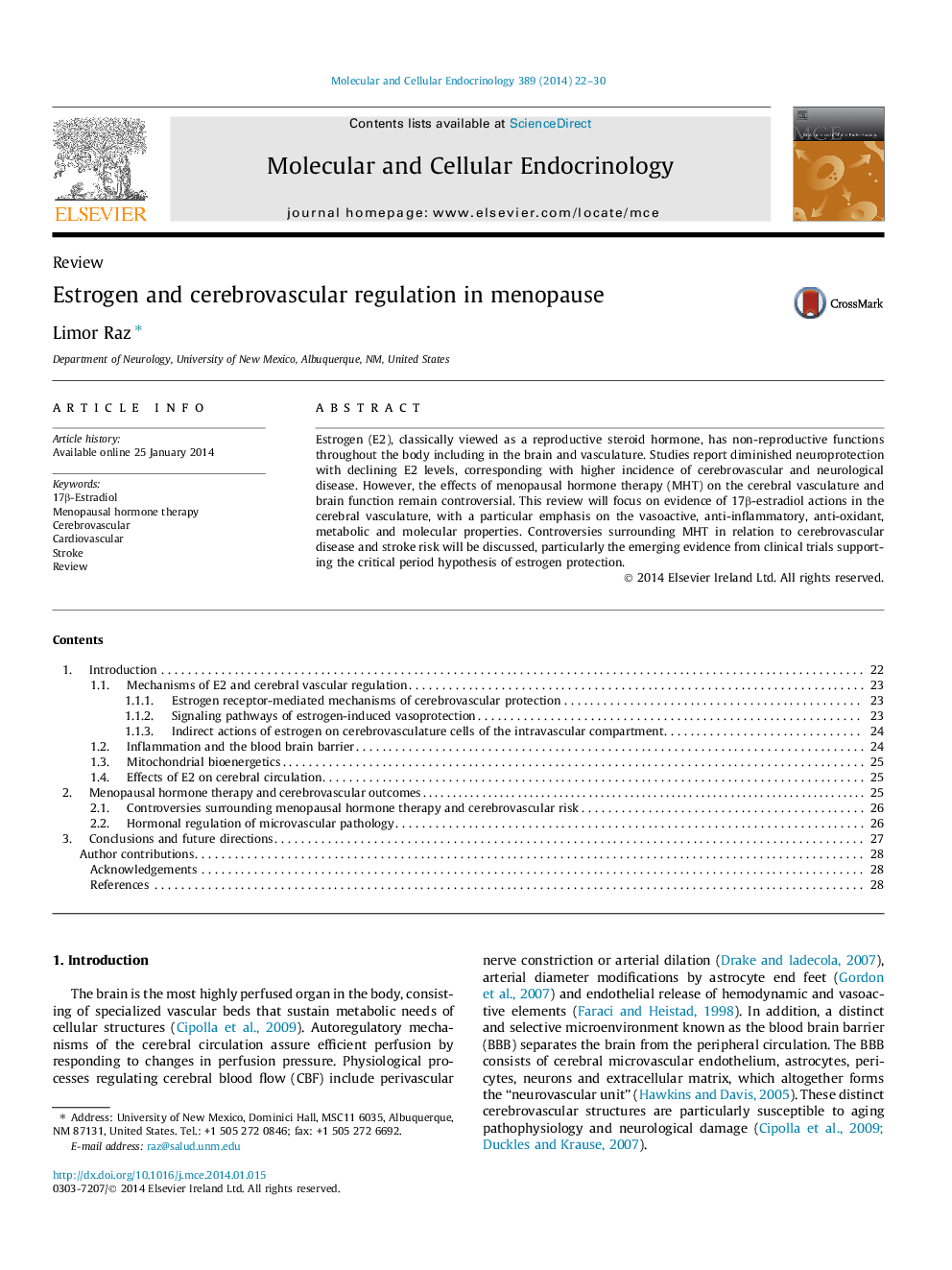| Article ID | Journal | Published Year | Pages | File Type |
|---|---|---|---|---|
| 2196081 | Molecular and Cellular Endocrinology | 2014 | 9 Pages |
•Estrogen is vasodilatory, anti-inflammatory and antioxidant in cerebral vasculature.•Evidence supports the critical period of E2 protection in animals and humans.•Timing, duration, dose of estrogen and health of woman predict cerebrovascular risk.•We conclude that E2 protection is multifactorial and situation-specific.•Longer duration of hormones may be needed to induce neuro- and vaso-protection.
Estrogen (E2), classically viewed as a reproductive steroid hormone, has non-reproductive functions throughout the body including in the brain and vasculature. Studies report diminished neuroprotection with declining E2 levels, corresponding with higher incidence of cerebrovascular and neurological disease. However, the effects of menopausal hormone therapy (MHT) on the cerebral vasculature and brain function remain controversial. This review will focus on evidence of 17β-estradiol actions in the cerebral vasculature, with a particular emphasis on the vasoactive, anti-inflammatory, anti-oxidant, metabolic and molecular properties. Controversies surrounding MHT in relation to cerebrovascular disease and stroke risk will be discussed, particularly the emerging evidence from clinical trials supporting the critical period hypothesis of estrogen protection.
